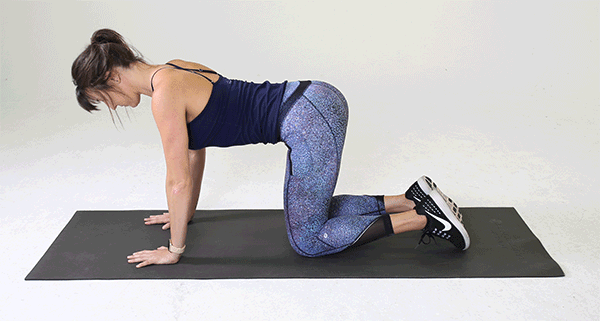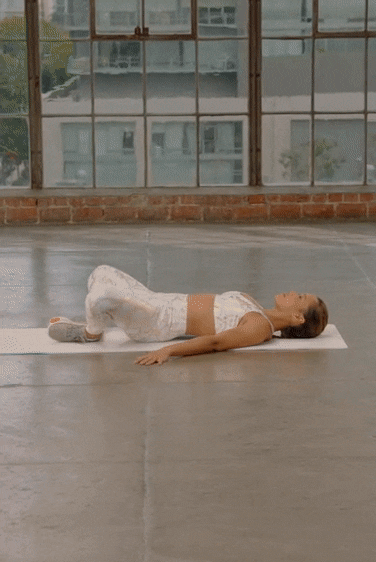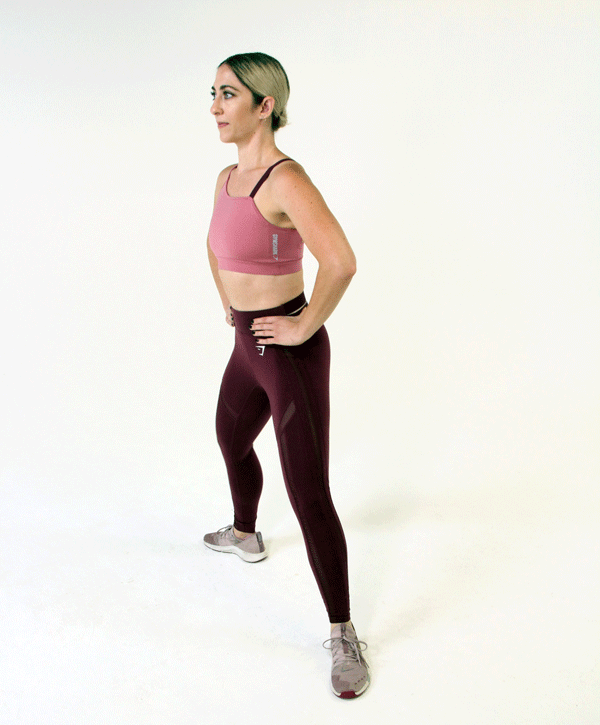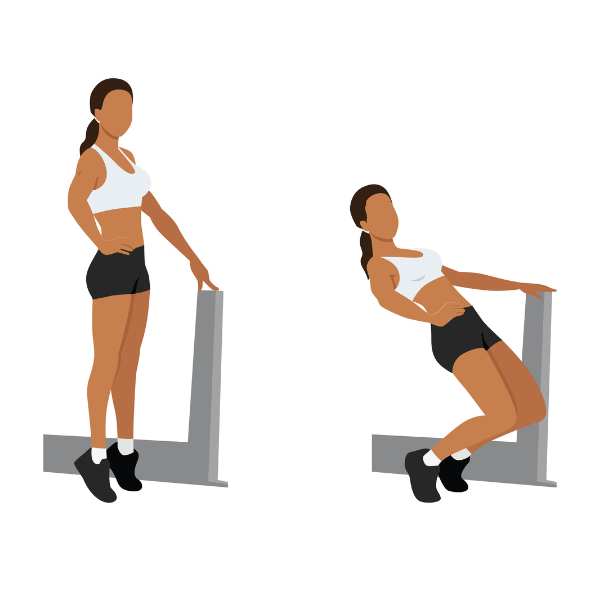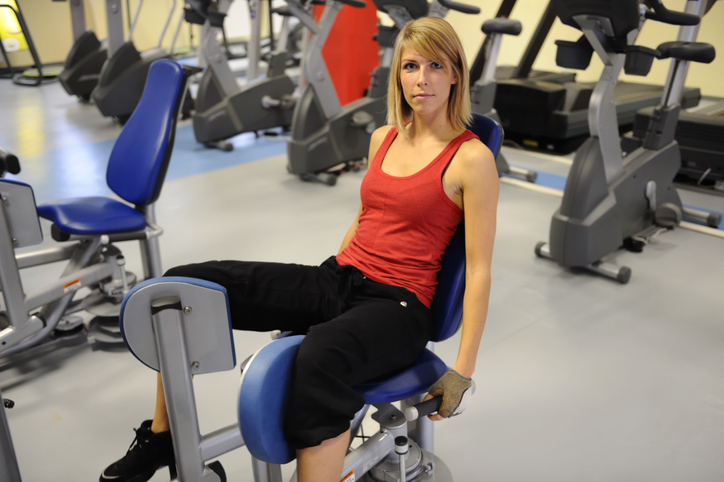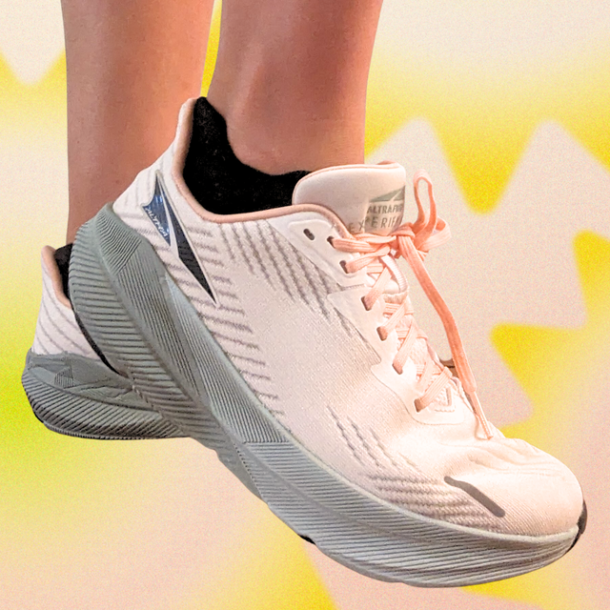There are different types of gymtimidation. You’re probably aware of the most significant one: feeling like you don’t know what you’re doing and don’t fit in with the people who do.
But it can also be quite intimidating to rep out awkward exercises like the fire hydrant or donkey kick where everyone can see you like there’s nothing silly about it.
But here’s the thing: These moves and several other awkward exercises you’re hesitant to do where people can see you are quite effective.
“While some of these movements may look and feel silly to do, the benefits of the muscle groups targeted and strengthened outweigh a few minutes of feeling awkward,” says Jim White, RD, ACSM EX-P, owner of Jim White Fitness and Nutrition Studios in Virginia.
So strap in because these exercises may make you blush, but they’ll also make you a better lifter.
1. Fire Hydrant
At best, this exercise makes you look like what it’s named after: a dog marking a fire hydrant. But the most horrifying part of this exercise may be that it’s a dead giveaway that you’re old enough to remember the 80s.
Dye your gray if you need to, but don’t give up on the fire hydrant because “this movement helps to strengthen hip abduction, glute muscles, and the lumbar muscles in the lower back, which is great for lower body stability,” says White.
- Start on all fours with your hands under your shoulders and your knees under your hips. This is your starting position.
- Keeping your hips level and your core engaged (see below for more on that), raise your right knee out to the side as high as you can, and hold for 1 second.
- Lower your right leg to return to the starting position, and repeat for a total of 15 reps. Then switch sides and repeat the sequence.
2. Hip Thrust/Glute Bridge
The only thing worse than doing these exercises in a crowded gym is accidentally making eye contact with a stranger in the middle of your set.
Keep your eyes on the ceiling and power through, though, because these are “great for building strength in the glutes,” says White, and that has significant benefits. Stronger glutes are “helpful in maintaining proper pelvic positioning, balance, and propulsion in walking or running.”
- Lie on your back, arms down by your sides. Bend your knees and plant your feet flat on the floor.
- Pull in through your navel to brace your core muscles and then squeeze your glutes to press your hips up so your body forms a straight line — no arching — from knees to shoulders.
- Keep your head on the floor and eyes focused on the ceiling.
- Hold the position for a beat, and then lift and lower and repeat.
3. Frog Pump
When you thought you were over the hip thrust embarrassment, in comes the frog pump. In terms of the blush factor, the frog pump is like the hip adductor machine and hip thrust joined forces to humiliate you.
But if you’re looking for an exercise to light up your glutes, you won’t find something better. The power of frog pumps, White explains, comes from the fact that they “put the focus on glute activation by reducing the amount of hamstring activation that we see in standard glute bridges.”
- Lie on your back, arms by your sides, palms facing down. Alternatively, you can make fists with your hands, rest your elbows on the floor, and lift your fists up so that your forearms are perpendicular to the floor.
- Bend your knees and press the soles of your feet together so that your legs create a “frog legs” or “butterfly” shape.
- Pressing the outer edges of your feet against the floor, engage your core and use your glutes to lift your hips. Make sure your shoulders and upper back remain anchored to the floor.
- Pause, then slowly lower the hips to the floor. Repeat.
4. Frog Squat
This exercise may make you look like you forgot how to squat in the middle of the movement, but it’s nothing to be embarrassed about. Anyone who has done a set of these knows how viciously they burn.
White says they’re also beneficial for building the musculature around your knees, which helps protect them from injury. So consider yourself a warrior and pump on.
- Stand with your feet slightly wider than your shoulders and your hands on your hips. Turn your feet outward more than 45 degrees. This is different from a sumo squat position, because your feet are turned out more, almost like a ballet position.
- Keeping your back flat, chest up, and core engaged, push your hips back, bend your knees, and lower your body as far as you can while keeping your chest up and maintaining a neutral spine. When viewed from the side, your torso and shins should form parallel lines (i.e., don’t lean your chest forward).
- Come back up halfway, rather than all the way, to maintain muscle tension.
5. Clamshell
Doing the clamshell at the gym can make you feel like you’re one step short of Eric Prydz’s Call On Me music video. If you put your head down and get through your sets, though, this exercise will give you a leg up on building glute strength.
Just make sure you have proper form for maximum strength gains, advises White.
- Lie on your right side with your feet and hips stacked, your knees bent 90 degrees, and your head resting on your right arm.
- Draw your knees in toward your body until your feet are in line with your butt. Place your left hand on your left hip to ensure it doesn’t tilt backward. This is your starting position.
- Keeping your abs engaged and your feet together, raise your left knee as far as you can without rotating your hip or lifting your right knee off the floor.
- Hold for 1 second, squeezing your glutes at the top of the move, before slowly lowering your left knee to the starting position.
- Continue for a total of 20 reps, then repeat on the other side.
6. Sumo Squat
Like the frog squat, the sumo squat builds the muscles surrounding your knees to protect this joint from injury. In White’s book, this benefit should outweigh the embarrassment.
But if you still don’t feel comfortable with exercises like sumo squats that make you stick out your rear, consider getting a lifting buddy or trainer so that you can “just have fun with it.”
- Stand with your feet wider than your shoulders and your arms at your sides. Turn your feet slightly outward. This is the starting position.
- Keeping your chest up and core engaged, push your hips back, bend your knees, and lower your body until your thighs are at least parallel to the floor. As you squat down, bring your hands together in front of your chest.
- Pause, and then return to the starting position.
7. Donkey Kick
It’s easy enough to find a back corner if you’re doing these with bodyweight or ankle weights, but you don’t have any control over the machine’s placement in your gym.
If yours placed it in a very open location, refrain from giving the manager interior design tips and focus on the benefits. White says this is a great movement to start with because it’s so effective for “warming up for hip extension and glute activation movements.”
- Get down on all-fours, with your hands directly below your shoulders and knees directly below your hips. Your back should be flat, your neck neutral.
- Keeping your arms straight, core engaged, and knees bent 90 degrees, raise your right knee off the floor and press the sole of your right foot up toward the ceiling. Squeeze your right glute (butt muscle) as hard as you can at the top of the movement.
- Reverse the move, lowering your right knee to the starting position.
- Repeat for the prescribed number of reps, making sure to perform an equal number with each leg.
8. Sissy Squat
This exercise isn’t embarrassing because it’s suggestive, but fewer people know about it, which means more people at the gym may wonder what the heck you’re doing. They’re an excellent addition to your arsenal of quad-focused exercises, though.
“But if knee injuries already exist, it might be best to avoid this particular movement until the injury is healed and the muscles are strengthened by some of the less taxing movements,” warns White.
9. Adductor and Abductor Machines
It’s easier to feel awkward when you don’t know what the movements you’re performing are doing for your body.
These machines are great for “building stabilizer muscles in the legs,” explains White. Stronger stabilizers help prevent injury by making proper form on loaded movements like squats easier, White adds.
It’s About You
Overall, make your focus you, not the people around you. “Staying in your lane and focusing on yourself in the gym will not only help you stay focused on your exercise, but it will also help improve your mindset when you see the results of the movements you were once embarrassed to do in front of others,” says White.
“Taking care of your body by performing these strengthening movements should be the goal,” he says, adding that you should focus on these benefits rather than what other people are thinking about you.
